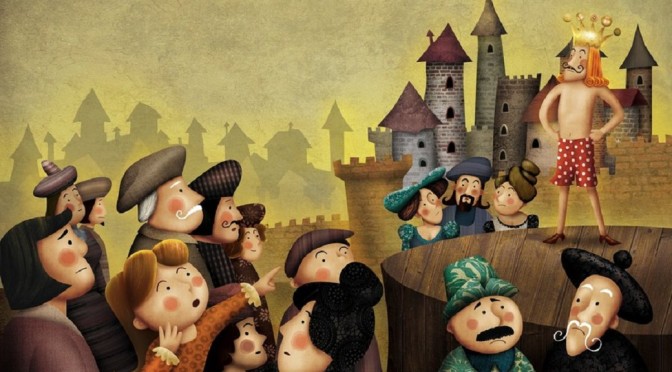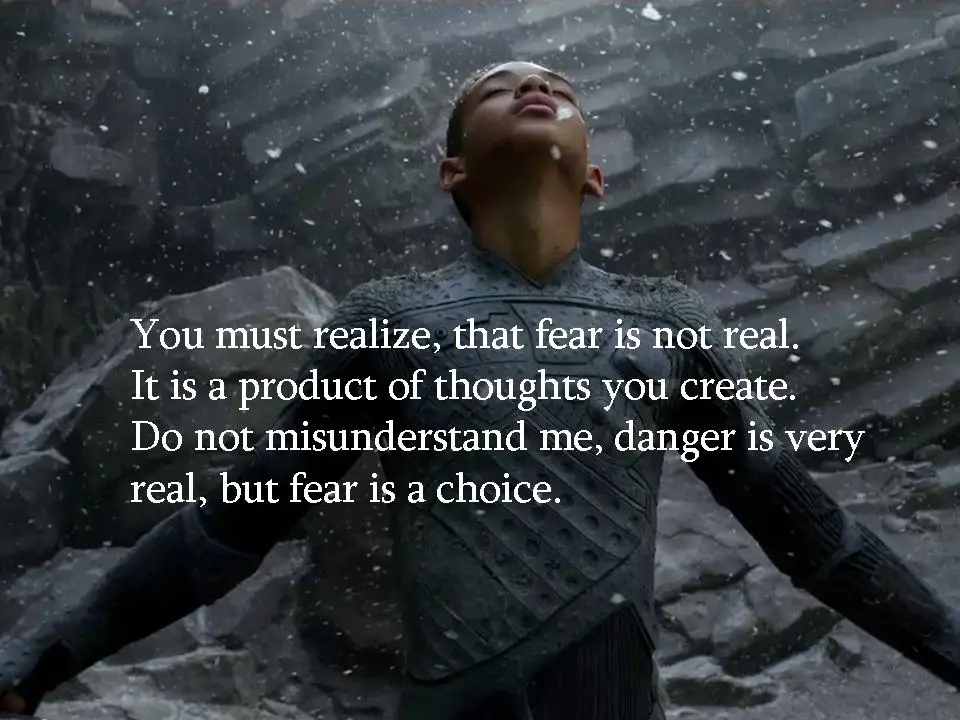by Kirsten Cowart at TheMindUnleashed.org
Published in 1837, the short story by Hans Christian Andersen called the Emperor’s New Clothes is a children’s story that carries some eye-opening messages about life, reality, society and self-deception.
It seems that no one wants to talk about self-deception these days. I believe one of the reasons for this is we feel embarrassed when we are wrong especially when we find out that we have been lying to ourselves.
When we lie to ourselves and we decide that we want to grow beyond the lie we have to look into life’s mirror metaphorically and face the truth behind our lies. This type of truth seeking can leave us feeling naked, vulnerable and a bit scared of what we are going to find.
Owning your Creation

Self-transparency is taught in many different spiritual circles today. They talk about owning your own creation. What they often mean is that if you feel that your life is bad, then that is your fault. Conversely, if you feel that your life is good then that may also be your fault.
Though a lot of our reality is determined by an optimistic or pessimistic perception it is good to learn how to accept our reality and find peace in the present moment. The truth of the matter is, there are many things that appear to be outside of our physical control.
For example other people’s thoughts and actions. Those are elements that can add insight into our world, but we cannot and should not control others. But enough about consciousness, we can dig into the realms of thought and self-mastery at a later time. What about Hans Christian Andersen?
Was Hans Christian Andersen awake?
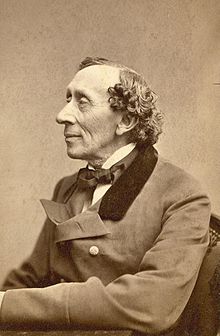
Hans Christian Anderson lived between 1805-1875 and wrote many different stories, poems, and fairy tales that have shaped our thought more than we probably realize. He wrote many different classic stories such as “The Little Mermaid“, “The Snow Queen“, “The Nightingale“, “The Ugly Duckling“, and “The Emperor’s New Clothes“.
If you want to influence people in a way that doesn’t offend them, and often will plant important thoughts into their subconscious then try what many of these great people did and tell stories. Metaphors, symbolism, and stories allow us to observe or experience an idea without our emotional bias getting in the way. This keeps self-deception at bay.
If you haven’t had a chance already, take a moment to read the profound short story from Andersen and see if any of the concepts remind you of modern society or the news media today.
The Emperor’s New Clothes
Many years ago there lived an emperor who loved beautiful new clothes so much that he spent all his money on being finely dressed. His only interest was in going to the theater or in riding about in his carriage where he could show off his new clothes. He had a different costume for every hour of the day. Indeed, where it was said of other kings that they were at court, it could only be said of him that he was in his dressing room!
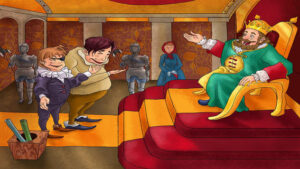
One day two swindlers came to the emperor’s city. They said that they were weavers, claiming that they knew how to make the finest cloth imaginable. Not only were the colors and the patterns extraordinarily beautiful, but in addition, this material had the amazing property that it was to be invisible to anyone who was incompetent or stupid.
“It would be wonderful to have clothes made from that cloth,” thought the emperor. “Then I would know which of my men are unfit for their positions, and I’d also be able to tell clever people from stupid ones.” So he immediately gave the two swindlers a great sum of money to weave their cloth for him.
They set up their looms and pretended to go to work, although there was nothing at all on the looms. They asked for the finest silk and the purest gold, all of which they hid away, continuing to work on the empty looms, often late into the night.
“I would really like to know how they are coming with the cloth!” thought the emperor, but he was a bit uneasy when he recalled that anyone who was unfit for his position or stupid would not be able to see the material. Of course, he himself had nothing to fear, but still he decided to send someone else to see how the work was progressing.

“I’ll send my honest old minister to the weavers,” thought the emperor. He’s the best one to see how the material is coming. He is very sensible, and no one is more worthy of his position than he.
So the good old minister went into the hall where the two swindlers sat working at their empty looms. “Goodness!” thought the old minister, opening his eyes wide. “I cannot see a thing!” But he did not say so.
The two swindlers invited him to step closer, asking him if it wasn’t a beautiful design and if the colors weren’t magnificent. They pointed to the empty loom, and the poor old minister opened his eyes wider and wider. He still could see nothing, for nothing was there. “Gracious” he thought. “Is it possible that I am stupid? I have never thought so. Am I unfit for my position? No one must know this. No, it will never do for me to say that I was unable to see the material.”
“You aren’t saying anything!” said one of the weavers.
“Oh, it is magnificent! The very best!” said the old minister, peering through his glasses. “This pattern and these colors! Yes, I’ll tell the emperor that I am very satisfied with it!”
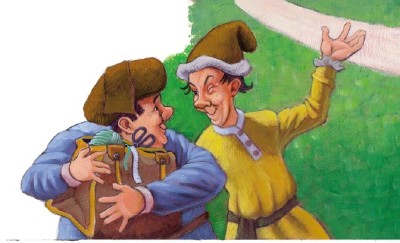
“That makes us happy!” said the two weavers, and they called the colors and the unusual pattern by name. The old minister listened closely so that he would be able to say the same things when he reported back to the emperor, and that is exactly what he did.
The swindlers now asked for more money, more silk, and more gold, all of which they hid away. Then they continued to weave away as before on the empty looms.
The emperor sent other officials as well to observe the weavers’ progress. They too were startled when they saw nothing, and they too reported back to him how wonderful the material was, advising him to have it made into clothes that he could wear in a grand procession. The entire city was alive in praise of the cloth. “Magnifique! Nysseligt! Excellent!” they said, in all languages. The emperor awarded the swindlers with medals of honor, bestowing on each of them the title Lord Weaver.
The swindlers stayed up the entire night before the procession was to take place, burning more than sixteen candles. Everyone could see that they were in a great rush to finish the emperor’s new clothes. They pretended to take the material from the looms. They cut in the air with large scissors. They sewed with needles but without any thread. Finally they announced, “Behold! The clothes are finished!”
The emperor came to them with his most distinguished cavaliers. The two swindlers raised their arms as though they were holding something and said, “Just look at these trousers! Here is the jacket! This is the cloak!” and so forth. “They are as light as spider webs! You might think that you didn’t have a thing on, but that is the good thing about them.”
“Yes,” said the cavaliers, but they couldn’t see a thing, for nothing was there.
“Would his imperial majesty, if it please his grace, kindly remove his clothes.” said the swindlers. “Then we will fit you with the new ones, here in front of the large mirror.”
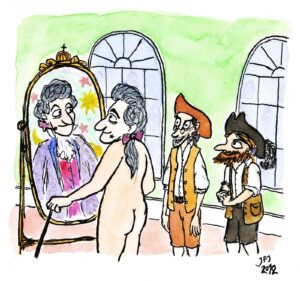
The emperor took off all his clothes, and the swindlers pretended to dress him, piece by piece, with the new ones that were to be fitted. They took hold of his waist and pretended to tie something about him. It was the train. Then the emperor turned and looked into the mirror.
“Goodness, they suit you well! What a wonderful fit!” they all said. “What a pattern! What colors! Such luxurious clothes!”
“The canopy to be carried above your majesty awaits outside,” said the grandmaster of ceremonies.
“Yes, I am ready!” said the emperor. “Don’t they fit well?” He turned once again toward the mirror, because it had to appear as though he were admiring himself in all his glory.
The chamberlains who were to carry the train held their hands just above the floor as if they were picking up the train. As they walked they pretended to hold the train high, for they could not let anyone notice that they could see nothing.
The emperor walked beneath the beautiful canopy in the procession, and all the people in the street and in their windows said, “Goodness, the emperor’s new clothes are incomparable! What a beautiful train on his jacket. What a perfect fit!” No one wanted it to be noticed that he could see nothing, for then it would be said that he was unfit for his position or that he was stupid. None of the emperor’s clothes had ever before received such praise.
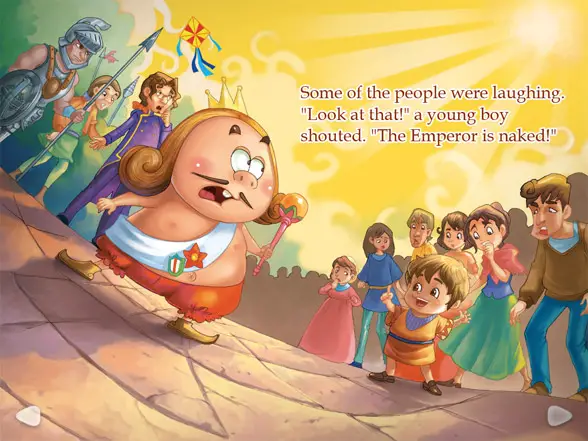
“But he doesn’t have anything on!” said a small child.
“Good Lord, let us hear the voice of an innocent child!” said the father, and whispered to another what the child had said.
“A small child said that he doesn’t have anything on!”
Finally everyone was saying, “He doesn’t have anything on!”
The emperor shuddered, for he knew that they were right, but he thought, “The procession must go on!” He carried himself even more proudly, and the chamberlains walked along behind carrying the train that wasn’t there.
———-
Have you ever caught yourself agreeing with somone because it feels easier or safer than speaking your mind?
Just like in the story above I feel that often times when someone is expressing an opinion it becomes easier to just nod and agree then it is to calmly state that we do not see it the same way. When we do this we aren’t allowing others the oprotunity to grow or ourselves the ability to express our ideas about the topic.
We are a new generation of truth seekers that will not rest until we understand what is really going on with the government, wars, media, big energy companies, technology and consciouness.
Do you see people you know pulled into the fear games of the news media? Do you ever wonder what they are being disctracted from?
Perhaps the distraction is just as simple as keeping us focused on the past or in fear of the future instead of rooted in the present moment.
“Root yourself in this present moment now. Sight, sound, smell. What do you feel?” -Will Smith in After Earth
If we are being distracted, fooled, and continue to allow self-decpetion to rule then we loose and give away all of our power. Our power to act is where it has always been, in the present moment.
From the Mouth of a Child
Children are great at pointing out the flaws of society. They are new to the earth, have a fresh set of eyes and are often bold in their observations. Just like in the story above it was the child that shined a light on the kingdom’s self-deception.
We can learn a lot from the bold actions of children. We are a new generation, a conscious generation and it is our time to find our voice and shine the light of truth in this world.
What do you think about the lessons behind The Emperor’s New Clothes and how it relates to our modern world? Let us know your thoughts in the comments below.
Sources-
http://www.pitt.edu/~dash/type1620.html#andersen
https://en.wikipedia.org/wiki/The_Emperor%27s_New_Clothes
Image source: patheos.com
